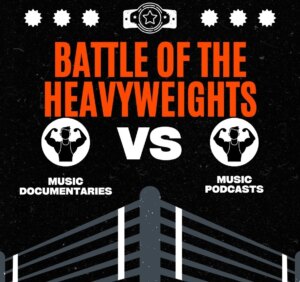International Association for the Study of Popular Music (IASPM): Australia-Aotearoa/New Zealand 2024 Branch Conference
The Australia-Aotearoa/New Zealand branch of IASPM held their annual conference, hosted at Te Kunenga ki Pūrehuroa Massey University and Te Herenga Waka Victoria University of Wellington, from the 4th – 6th of Dec ‘24. This year’s theme of ‘Musical Translations & Transformations’ explored a range of popular music scholarship and practice, focusing on their intersections with diverse social, political, and industry contexts. Papers and panels covered topics such as activism in academia, transformative technologies, the politics of platforms, and critiques of hegemonic structures in the music industry.
The conference began with a Roundtable Discussion with Jadey O’Regan, Nazz Oldham, and Sarah Attfield – which considered the topic “How do we advocate for our industr(ies)? AKA – what are academics good for?” and profiled each presenter’s public facing work. Other panels across the conference included Gender, Sexuality, and Liberation in Music, Transforming Technology, Data and Discographies, Stardom and Identity, amongst many others.
My presentation took place on the second day of the conference, as part of the Formatting Histories panel, alongside papers from Gay Breyley and Liz Giuffre. The paper, Pod v Doc: A Comparative Analysis of Music-Based Podcasts and Radio Music Documentaries, was an opportunity to explore the evolution and impact of music documentaries and podcasts, using my own production practice for Radio New Zealand as initial case studies. These documentaries included explorations of Bowie’s 1983 Western Springs concert, his visit to Takapuwaihia Marae in Porirua, and a celebration of Let’s Dance’s 40th anniversary, which reflected over a decade-long process of reworking and enhancing content.
The paper went on to investigate the transformation from traditional radio documentaries to digital music podcasts, contrasting their production approaches, distribution models, and audience dynamics. I suggested that music podcasts have democratised music criticism, empowering fans to share expertise without the constraints of traditional media gatekeepers. However, this shift has also raised concerns about the de-professionalisation of music journalism, with many podcasts created by untrained and often unpaid amateur enthusiasts. The paper also addressed the commercialisation of music documentaries and podcasts, which are often driven by record labels. I concluded with a brief overview of how podcasts and documentaries can serve as impactful academic outputs, fostering public engagement with musicology.

Podcasting examples featured in the presentation included Switched on Pop, Song Exploder, Sound Expertise: Conversations with Scholars about Music, Sodajerker, and The Strangeness of Dub series from Morley College, while radio documentaries included the BBC’s Bowie in Berlin, and The Rise and Fall of Oasis, as well as Radio New Zealand’s Under the Influence series.
Although podcasting has come to dominate audio-based music investigations, I argued that radio documentaries still hold value, offering emotional, narrative-rich experiences. As the audio documentary-maker and journalism academic Siobhán McHugh theorised, podcasting has in many ways revitalised the traditional music documentary for radio – rather than replacing it.
My thanks to the local Organising Committee of Catherine Hoad, Geoff Stahl, Kimberly Cannady and Oli Wilson for their hard work arranging the conference (the 2025 event will be held in Dunedin, NZ, at the University of Otago – Ōtākou Whakaihu Waka).
